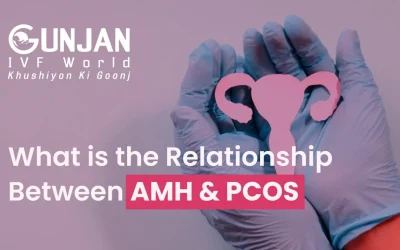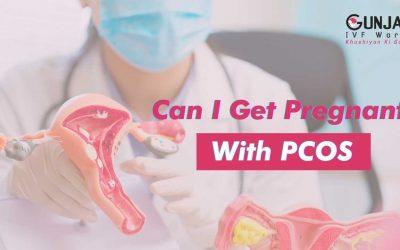Introduction
Endometriosis is a condition in which tissue comparable to a woman’s uterus lines develops outside the uterus. This tissue behaves similarly to typical uterine tissue during your period. After the cycle, it will disintegrate and bleed. But there’s nowhere for this blood to go.
It’s possible that the surrounding regions may become irritated or bloated. Scar tissue and lesions are possible. Your ovaries are the most prevalent site of endometriosis.
What is Endometriosis?
Endometriosis is a condition in which tissue that looks like the lining of your uterus develops outside of it. For example, the endometrium is the lining of your uterus.
An endometrial-like tissue forms on your ovaries, intestines, and pelvic tissues in this condition. Endometrial-like tissue seldom spreads outside the pelvic area, although it may happen.
For example, an endometrial implant is an endometrial-like tissue that grows outside of your uterus.
The displaced endometrial-like tissue is affected by the hormonal fluctuations of your menstrual cycle, causing it to become irritated and uncomfortable.
This indicates that the tissue will expand, thicken, and eventually break down. The damaged tissue eventually has no place to go and gets stuck in your pelvis.
What are the causes?
Although the specific aetiology of endometriosis is unknown, the following are some plausible explanations:
- Retrograde menstruation: Menstrual blood, including endometrial cells, travels back through the fallopian tubes and into the pelvic cavity rather than out of the body during retrograde menstruation. These endometrial cells adhere to the pelvic walls and the surfaces of pelvic organs, where they increase, thicken, and bleed throughout each menstrual cycle.
- Transformation of peritoneal cells: Experts argue that hormones or immunological factors stimulate the transition of peritoneal cells — cells that line the inner wall of your belly — into endometrial-like cells, which is known as the induction theory.
- Embryonic cell transformation: During puberty, hormones like estrogen may change embryonic cells (cells in the early stages of development) into endometrial-like cell implants.
- Surgical scar implantation: Endometrial cells may cling to a surgical incision after a procedure such as a hysterectomy or C-section.
- Endometrial cell transport: Endometrial cells may be transported to different body areas through blood vessels or the tissue fluid system.
- Immune system dysfunction: The body may be unable to identify and kill endometrial-like tissue developing outside the uterus due to an immune system dysfunction.
Read More – How Serious Is Endometriosis?
20+ Years Of Experience as Fertility Specialists
20 Years Of Experience as a Fertility Specialists
National Fertility Awards 2023
Call Us
+917042874533
What are the symptoms?
Endometriosis may cause the following symptoms:
- Excessive menstrual cramps, which may be felt in the belly or lower back
- Discomfort during intercourse
- Abnormal or excessive menstrual flow
- Infertility
- Painful urination
- Discomfort bowel movements during menstrual cycles
- Other gastrointestinal issues like diarrhea, constipation, or nausea
For more information about Endometriosis or for a consultation regarding those symptoms, you can contact me.
If you are looking for a good Endometriosis specialist, you can consult Dr. Gunjan Gupta. Using the latest medical equipment, Dr. Gunjan Gupta offers comprehensive Endometriosis treatment. She is one of the most experienced Endometriosis doctors in Delhi.
What are the treatments?
Endometriosis has no known treatment. Surgery or medication are generally used as treatments. However, you may need to try a variety of therapies to figure out what works best for you.
- Pain relievers: An over-the-counter pain treatment may be recommended by your doctor. Many patients benefit from non-steroidal anti-inflammatory medicines (NSAIDs), such as ibuprofen (Advil, Motrin) or naproxen (Aleve). If they don’t help, talk to your doctor about additional possibilities.
- Hormones: Hormonal treatment reduces the amount of oestrogen produced by your body and may even cause your menstruation to cease. This reduces the amount of bleeding in lesions, resulting in decreased inflammation, scarring, and cyst development. Hormones that are often used include:
- Birth control pills, patches, and vaginal rings
- Danazol (Danocrine)
- Progestin-only contraceptives
- Gonadotropin-releasing hormone (Gn-RH) agonists and antagonists such as elagolix sodium (Orilissa) or leuprolide (Lupron)
- Surgery: Surgery to remove as much of the damaged tissue as feasible may be recommended by your doctor. In rare circumstances, surgery might alleviate discomfort while increasing your chances of becoming pregnant. For example, your doctor may use a laparoscope or do a traditional surgery with bigger incisions. However, after surgery, the pain might occasionally return.
In the most severe instances, you may need a hysterectomy, which involves the removal of your ovaries, uterus, and cervix. You won’t be able to become pregnant later if you don’t have them.
Book An Appointment
Follow Us On
FURTHER READING
Is it possible for endometriosis to recur?
Three variables influence whether endometriosis returns (recurs) after surgery:
- What was the severity of the illness at the time of surgery
- The extent to which the operation eliminated the lesions
- Whether or not suppressive medical treatment was done after surgery
New or pre-existing lesions may emerge following surgery. As a result, determining if your condition has returned or is advancing may be challenging for your doctor.
Conclusion
Endometriosis is a chronic idiopathic disease, which means no one knows what causes it. However, effective therapies, such as drugs, hormone therapy, and surgery, are available to control the disease’s adverse effects and consequences, such as discomfort and reproductive problems. In addition, endometriosis symptoms often improve after menopause.
If you suspect you have endometriosis, you should call your doctor to begin the process of receiving an accurate diagnosis and developing a treatment plan.
Share this with
Related Videos
What is the Relationship Between AMH and PCOS?
Polycystic ovarian syndrome (PCOS) is a hormonal disorder that affects women of reproductive age. It is characterized by menstrual irregularities, cysts on the ovaries, and high levels of testosterone.
Can I Get Pregnant With PCOS?
If you have been diagnosed with PCOS, you may be wondering if you are still able to get pregnant. The good news is that most women with PCOS can still conceive a child, but there are some things that you need to keep in mind.
Follow Us On
About Author





